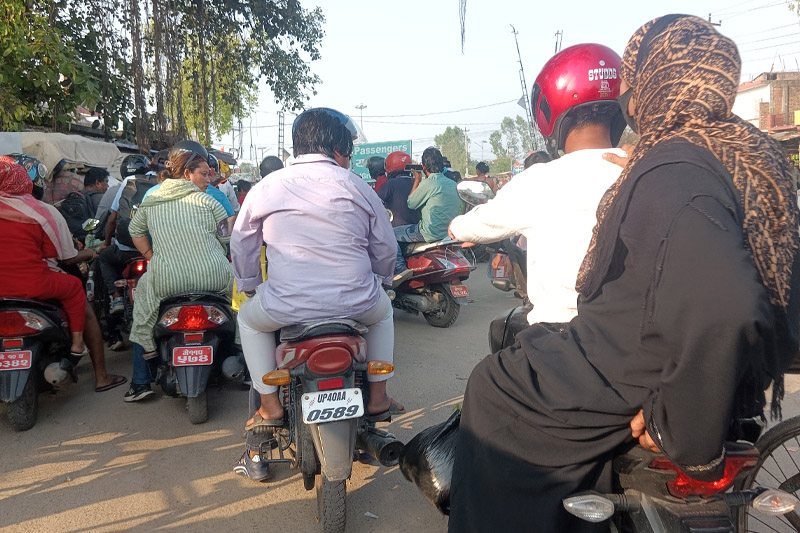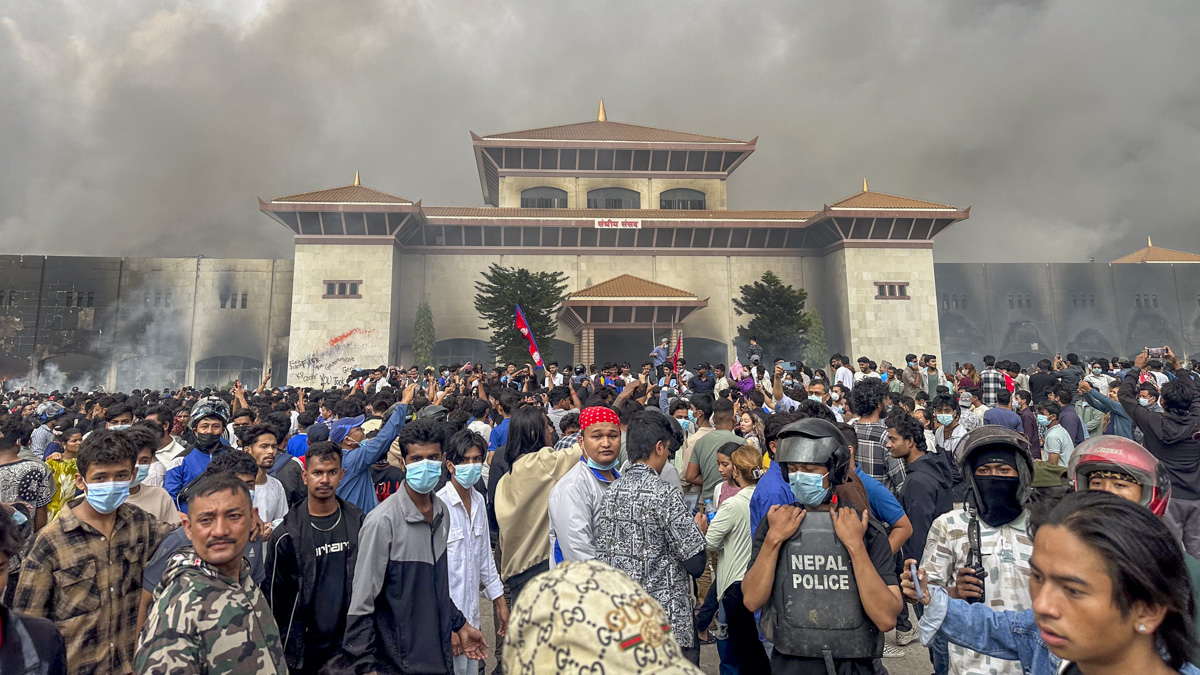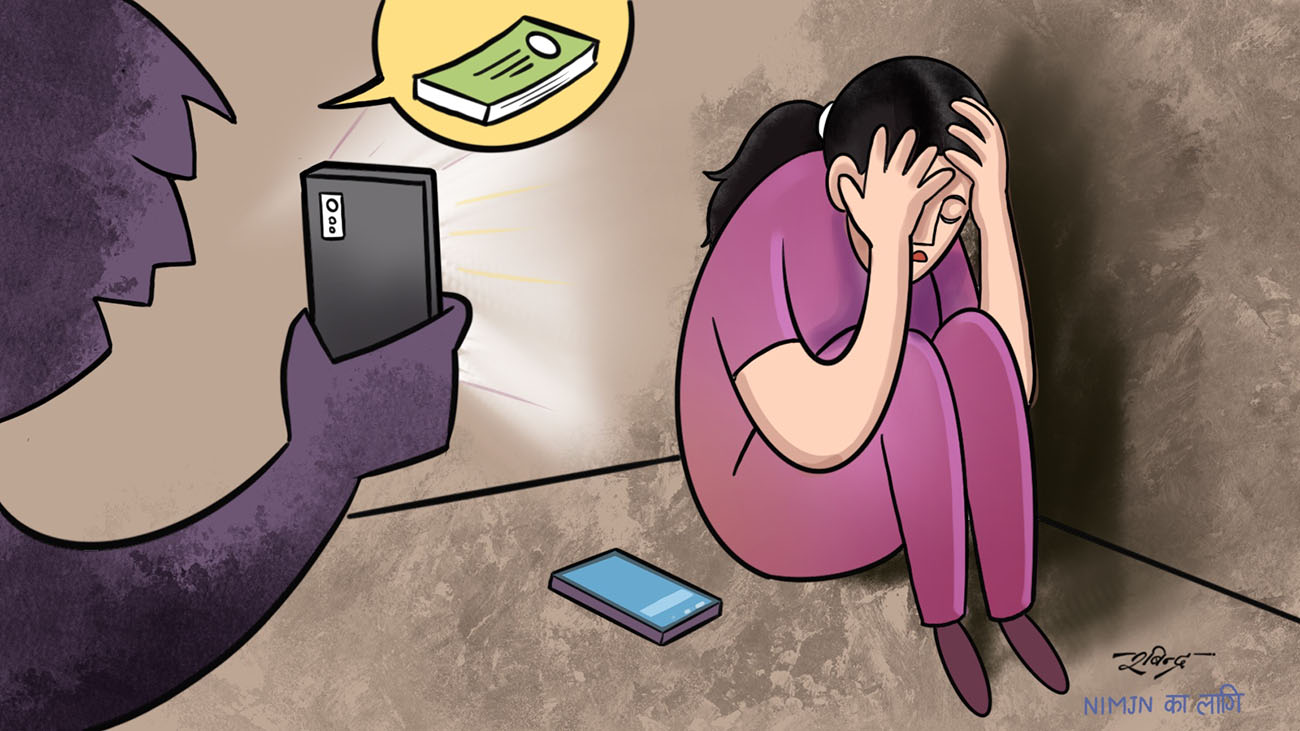Case 1
Sunita, 22, (name changed) from Achham district was rescued by Maiti Nepal on September 10, 2024. She was being transported to India by Bharat Sharma, a man from her village.
 Case 2
Case 2
Rita, 20, (name changed) from Kavre district was rescued on March 22, 2023 from Nepalgunj by a rescue team of Maiti Nepal. One Prakash Bista from Dailekh had transported her to Nepalgunj by promising to take her to a third country via India for gainful employment.
Case 3
Punam, 20, (name changed) from Rupandehi district was rescued by Shanti Punasthapana Griha (Peace Rehabilitation Center) from Duduwa of Banke on March 6, 2024. One Sunil Sunar from Dailekh was taking her to India.
Sunita, Rita and Punam have one thing in common. They come from poor families and they were going to India in search of employment. Thanks to the efforts of Maiti Nepal and Shanti Punasthapana Griha, the agencies which monitor the people in risk of human trafficking, they were rescued.
Numerous organizations are actively working to rescue girls vulnerable to trafficking from the southern border regions of Nepal. According to Keshav Koirala, the Banke district coordinator for Maiti Nepal, girls similar to Sunita and Rita are rescued from the Nepalgunj border area daily.
Yam Bahadur Malla, a Police Inspector at the District Police Office in Banke, stated that the office receives complaints concerning girls being trafficked to Indian cities due to poverty and unemployment within their families. "Poverty, unemployment, love marriages, and the necessity to seek employment in foreign countries have become contributing factors to trafficking," he explained.
Sunita, who was rescued from Nepalgunj, comes from a family facing severe poverty. Her two sisters and brother have been unable to attend school due to their financial circumstances. Sunita herself had to discontinue her education while in the ninth grade. Her brother and father are predominantly in India, working to provide a livelihood for the family.
Amidst these challenging circumstances, Sunita recounted that an individual named Bharat Sharma sent her a friend request via a Facebook profile under the name Aman Khanal. During their conversations on Facebook, she confided in Bharat about her family's difficult situation. Bharat, claiming to work at a hotel in Bangalore, proposed marriage and promised to take her with him. He told her, "I love you, marry me, and we will go together. Don't tell anyone about this." "This is how she was lured into it," explained Keshab Koirala.
According to Sunita, he persisted with his proposal despite her initial refusal. "He threatened her, saying that if she didn't agree to marry him, he would publicly share their conversations and photos to defame her and that he would commit suicide in her name. He also said he was willing to do anything to get her," Sunita told a representative of Maiti Nepal after her rescue. It was following these threats that Sunita went with Bharat, according to Keshav Koirala. On September 8, 2024, she and Bharat traveled by bus from Rukum to Dhangadhi, then proceeded to Nepalgunj on September 10, and were en route to India when she was rescued. Sunita stated that Bharat had taken her mobile phone and prevented her from speaking to her family.
She has since been reunited with her family, and a case of human trafficking has been registered against Bharat in the Banke District Court, according to Maiti Nepal.
In his statement to the police, Bharat claimed that he was taking Sunita to India with the intention of marrying her. "I like Sunita. I am going to marry her. I am not someone who sells people," Bharat stated. "I work in a hotel. I would never consider selling her or abandoning her. I will marry her, and we will live together."
The investigation revealed that Sunita's family alleged Bharat was already married and involved in transporting other girls to India. However, no evidence to support these claims has been found, and no additional charges have been filed against Bharat.
Sufferings of Rita
Rita, whose education was limited to the eighth grade due to poverty, journeyed to Kathmandu from the Kavre district in search of employment. There, she secured a cooking position in a household. During this time, Anu Thapa, a relative by marriage (her sister-in-law), introduced her to Prakash Bista from Dailekh.
This same Prakash was later discovered to be in the process of transporting her to a third country via India. She was rescued from the border by members of Shanti Punasthapana Griha in Nepalgunj and subsequently returned to her home. However, a mere two days later, she was back at the border, resolute in her decision to go to India once more. She was rescued for a second time. In her statement to the police following the second rescue, Rita recounted the following: "Prakash told me not to worry about anything. He said he would take care of the documentation expenses and the passport application. He assured me that if I worked hard in a foreign country, I could earn double the amount I make here in Nepal." According to Rita, Prakash informed her of a high demand for workers, particularly cooks, in Kuwait, where they were well-compensated. Consequently, she agreed to leave for this employment opportunity.Prakash prepared documents for Rita’s passport and visa and he said that she would go to Kuwait via India, informed Nirmal Subedi, the coordinator at Griha, citing Rita’s statement.
Early in the morning on March 21, 2025, the rescue team approached Rita, who had arrived in Nepalgunj by bus from Kathmandu. Suspecting inconsistencies in her account, they intervened and rescued her. As the inquiry commenced, Prakash seized his bag and fled the bus. According to Nirmal Subedi, the passports of Rita, along with others, were recovered from his bag.
The organization contacted Rita's brother, who came to Nepalgunj, and she was handed over to his care. Rita's brother stated that he would not pursue legal action against Prakash and took his sister away. However, Rita and her brother did not return home. They were located in Nepalgunj by Prakash, who once again assured them that Rita would be sent to Kuwait for a good job. Rita's brother returned home from Nepalgunj on March 23.
Prakash and his associates, Bikash Sharma and Sunita Adhikari, stayed back in Nepalgunj.

Subsequently, on March 25, at approximately 11:00 am, Prakash was attempting to take Rita across the border through the Shivapuri crossing in Janaki Rural Municipality-1, Banke. It was at this point that members of the Punarsthapana Griha located and rescued her.
"We had them under surveillance to apprehend them in the act," Nirmal Subedi explained. "As they were crossing into India via the Shivapuri point, we rescued her with the assistance of the police." The members of the organization continued their surveillance even after Rita was handed over to her brother following the initial rescue. Consequently, they were able to catch Prakash and two others red-handed, according to Nirmal. The police have registered a case of human trafficking and transportation against Prakash, Bikash, and Sunita in the Banke District Court.
In his statement to the police, Prakash maintained that his intention was to send Rita to Kuwait for employment, not for trafficking. However, the police have asserted that all the documents prepared by Prakash to facilitate Rita's travel to Kuwait are fraudulent.
Pretext of pilgrimage
Punam was employed at a restaurant in Rupandehi, and her earnings were entirely dedicated to the medical care of her elderly parents and household necessities. Seeking to increase her income, she encountered Sunil Sunar, a 50-year-old man from Dailekh, and they soon established a friendship. One day, Sunil suggested that Punam accompany him to a Siddhivinayak Temple in India. He explained that if a man and a woman of similar height and weight undertook a pilgrimage to this temple together, it would bring financial benefits to both. He had her height and weight measured, after which they planned their journey to the temple. Although Punam initially declined due to a lack of funds, Sunil offered to cover her expenses, and they both departed for Nepalgunj.
On the evening of March 5, 2024, they traveled by bus from Rupandehi to Nepalgunj, arriving at Pushpalal Chowk. In Nepalgunj, they met Arjun Chhetri and Sujata Rokaya, whom Sunil introduced to Punam as his friends. The four of them shared snacks and socialized together.
Sujita suggested to Punam that instead of crossing the border at Rupaidiha, they should use the border in Dududu Rural Municipality, citing long queues and inconveniences at the Rupaidiha crossing. According to Punam, Sujita explicitly instructed her that if anyone asked where she was going, she should say she was traveling to a temple for prayers and worship.
Consequently, Nirmal Subedi explained that when rescuers from the Punarsthapana Griha inquired, Punam stated she was going to a temple with her mother's sister. Immediately after the rescue, the members of the organization made a phone call to Punam's home. "When we spoke to her mother, she said she had no knowledge of Punam going to a temple," Nirmal recounted. The organization then requested her mother to come to Nepalgunj to receive her daughter, Punam.
Punam disclosed all the details after she was rescued and provided shelter at the Griha. According to Nirmal Subedi, Sunil, along with Arjun and Sujita, has been arrested, and a case of human trafficking has been filed against them.
In his statement to the police, Sunil claimed that he took Punam with him because he was alone and that he had no intention of trafficking her.
Rising graph
Despite ongoing programs and awareness campaigns launched by Nepal Police and various social organizations to mitigate risky travel, trafficking cases have not decreased. Instead, statistics from the last five years compiled by Maiti Nepal indicate a rising trend. Alarmingly, risky travel along border areas continues unabated.
Organizations dedicated to trafficking control define risky travel as journeys where the traveler lacks clarity regarding their destination and the purpose of their travel, and where there is prior information suggesting they have run away from home. According to Maiti Nepal, a total of 598 individuals undertook risky journeys in the fiscal year 2023/24. This number represents an increase from the 509 individuals who embarked on such journeys in 2022/23, and a significant rise compared to the 267 cases recorded in 2019/20. Individuals identified as being on risky journeys are rescued by representatives of anti-trafficking agencies operating in border areas.
In the last fiscal year alone, Maiti Nepal rescued a total of 613 individuals and successfully reunited them with their families. Additionally, 438 individuals received counseling and were safely returned to their respective homes, according to Keshav Koirala, the Banke district coordinator for Maiti Nepal.
(This investigative report was prepared through the NIMJN fellowship supported by the Australian Aid. All rights reserved with the author and publisher.)
Please adhere to our republishing policy if you'd like to republish this story. You can find the guidelines here.



